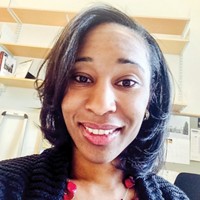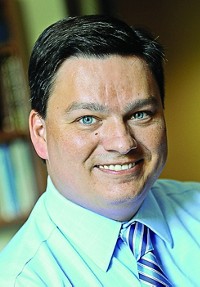Advertisement
Grab your lab coat. Let's get started
Welcome!
Welcome!
Create an account below to get 6 C&EN articles per month, receive newsletters and more - all free.
It seems this is your first time logging in online. Please enter the following information to continue.
As an ACS member you automatically get access to this site. All we need is few more details to create your reading experience.
Not you? Sign in with a different account.
Not you? Sign in with a different account.
ERROR 1
ERROR 1
ERROR 2
ERROR 2
ERROR 2
ERROR 2
ERROR 2
Password and Confirm password must match.
If you have an ACS member number, please enter it here so we can link this account to your membership. (optional)
ERROR 2
ACS values your privacy. By submitting your information, you are gaining access to C&EN and subscribing to our weekly newsletter. We use the information you provide to make your reading experience better, and we will never sell your data to third party members.
Biological Chemistry
Mauritius
In deepwater dives, Daniel Marie hunts for bioactive compounds to treat diseases such as cancer
by Susan J. Ainsworth
September 26, 2011
| A version of this story appeared in
Volume 89, Issue 39

Born in the tiny fishing village of Grand Gaube in Mauritius, an island nation off the southeast coast of Africa, Daniel E. P. Marie knows a good catch when he sees one. As a teenager, he fell in love with science and realized that his passion was “to study biochemistry, if given the opportunity.” But Marie, the youngest of nine children born to a homemaker and home builder, almost missed that opportunity when he had to drop out of high school and work in the Mauritius Police Force to help support his family.
Marie did eventually earn his high school certificate and saved up enough money to enroll at the University of Mauritius, where he earned a B.Sc. in chemistry and environmental studies.
Today, Marie, 42, is a natural products chemist and a principal research scientist at the Mauritius Oceanography Institute (MOI), where he works to “unveil to the world the potential of the bioactive compounds that are present in the organisms that dwell in Mauritius waters,” he says.
As an undergraduate, he was offered the opportunity to work under Ameenah Gurib-Fakim on the extraction of essential oils from eucalyptus and the chemical modification of citral, a major component of the oils. Thus began Marie’s “fascination with natural products, their chemistry, and their medicinal properties,” he says.
Determined to continue his natural product studies with Gurib-Fakim as a doctoral candidate, Marie earned a scholarship from the government of Mauritius’ Tertiary Education Commission. He later won an Association of Commonwealth Universities scholarship, which allowed him to spend a year in Scotland at the University of Strathclyde, Glasgow. There, he gained access to state-of-the-art high-performance liquid chromatography and nuclear magnetic resonance instrumentation to further his research on the biological activity of extracts of the native medicinal plants of Mauritius.
After completing his Ph.D., Marie joined MOI. In his research there, he has visited fishermen and medicinal plant hawkers in the local markets to “gather information about the traditional medicinal uses of the marine plants and animals,” he says.
His research is focused on the potential medicinal properties of marine sponges—an area that caught his attention during a postdoctoral fellowship at Belgium’s Catholic University of Leuven in 2002. At the university, he devoted much of his work to verifying the anticancer properties of the extracts of Xestospongia exigua, a sponge he says he had “randomly collected” from a Mauritius lagoon.
Marie and other MOI staff members have been diving at 40 sites around Mauritius and thus far have collected specimens from roughly 100 species of sponges.
He has also set up collaborations with researchers at the University of Mauritius, which provided some lab space; France’s Centre National de la Recherche Scientifique, whose scientists are experienced in the extraction, purification, and isolation of marine natural products and also study the medicinal potential of marine sponges; and the University of Amsterdam, which has provided taxonomic identification of the sponges.
At MOI, Marie runs a small, government-funded laboratory staffed by two other chemists who collect and purify extracts from the sponges. In addition, MOI has set up a cell culture laboratory to test the extracts, 14 of which show significant activity against specific cancer cell lines, he says.
Although he does not have access to the same resources and sophisticated instrumentation as many researchers in developed countries, Marie says he has no plans to leave the island. He cites his love for his family and his country as reasons for staying. And he is determined to continue the hunt for powerful bioactive compounds in marine organisms that live in the 2 million-km2 sea zone over which Mauritius has exclusive rights for exploration.
At the same time, Marie acknowledges that discovering natural-product-based drugs requires teamwork with colleagues from other countries. “Through collaborative research,” he says, “we can work together for one common goal: to alleviate the pain of others.”






Join the conversation
Contact the reporter
Submit a Letter to the Editor for publication
Engage with us on Twitter